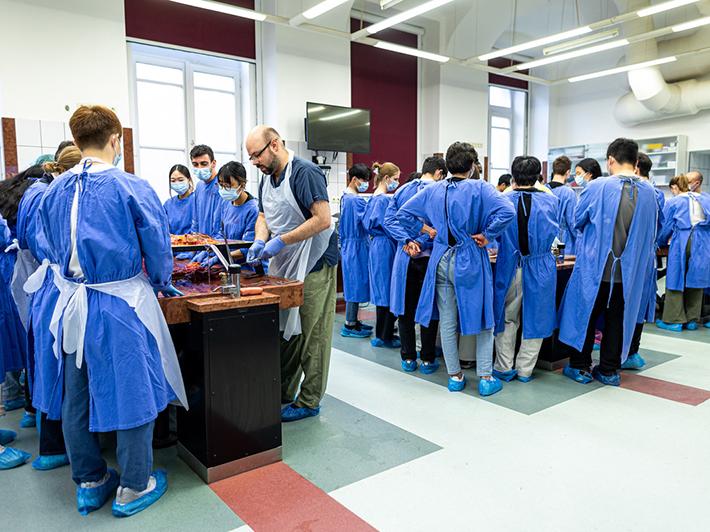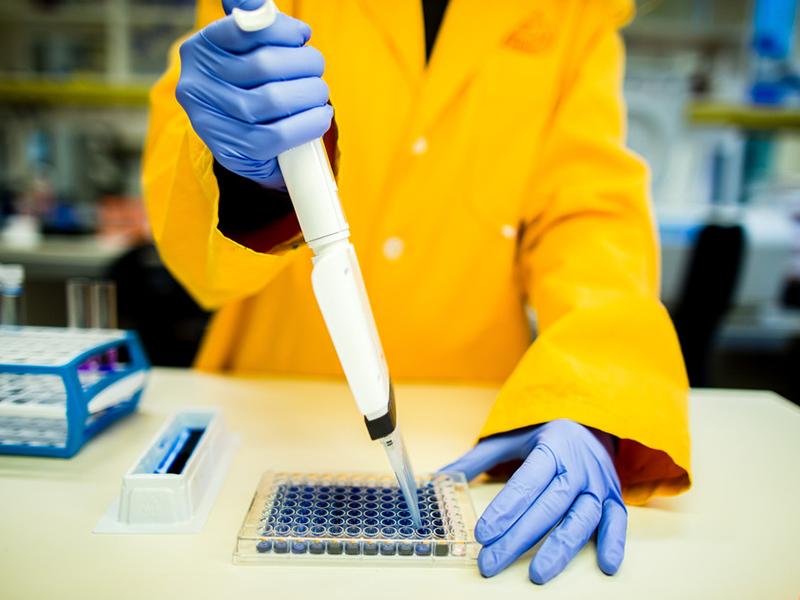
What skills does the 21st-century medical educator need?
Medical education has undergone a seismic shift. The traditional model of lecturing students who passively absorb vast amounts of data is no longer sufficient in the face of rapid expansion of medical knowledge, advances in technology and changes in the healthcare landscape. Our educators must do more than just convey information. They must inspire and mentor students as well as equip them with the critical thinking and problem-solving skills they will need to navigate a complex, interdisciplinary medical world.
At Semmelweis University, we realise that our teachers need to be trained in a similar way to our students – through hands-on, dynamic, student-centred methods. During my five years as dean of the Faculty of Medicine, I came to believe that the success of our medical students was intrinsically linked to the abilities of those who educate them. So, we have launched a faculty development programme to ensure that our teachers are as adaptable, innovative and engaged as the students they instruct.
- How to succeed as an early career researcher? Be motivated and inspire others
- Lessons in chemistry: widening university students’ participation through storytelling
- Using reflective practice to support postgraduate studies in the biosciences
The programme is built on three key pillars: pedagogical innovation, digital proficiency and emotional intelligence. In this personal reflection, I would like to share how we are transforming not just the medical curriculum but also the art and science of teaching it.
Key features of the faculty development programme
The pedagogy, digital and emotional intelligence elements of the faculty development programme ensure that our teachers not only understand how to impart knowledge effectively but how to mentor and support students in a holistic and empathic way.
Pedagogical innovation: active learning and mentorship
A cornerstone of our programme is the move away from passive, lecture-based teaching to more active-learning strategies. Educators are encouraged to incorporate storytelling-type communication tactics, problem-based learning, case-based discussions and simulation exercises into their courses. These methods ensure that students engage critically with material, collaborate with their peers and develop the decision-making skills they will need in clinical practice.
We also emphasise the importance of mentorship in medical education. Mentorship is one of the most critical factors in a student’s academic and professional development, yet it is often overlooked in formal training. In our programme, teachers learn how to be effective mentors: how to listen, provide guidance and help students navigate the inevitable challenges of medical training. Our goal is not to create just educators who can teach the material but mentors who can inspire students to be lifelong learners and compassionate professionals. The mentor programme has been expanded into a peer-mentoring system as well, in which mature medical students serve as mentors of freshmen.
Digital proficiency: leveraging technology for better performance
As the world of medical education moves increasingly online, the ability to navigate digital tools and create meaningful e-learning experiences have become essential. Thus, we focus on developing digital literacy among our faculty. During the Covid-19 pandemic, this training became even more critical. Our teachers had to pivot quickly to online education, and the foundation they had gained through the programme allowed them to continue delivering high-quality education in a virtual environment. Hybrid and blended learning models are now integral to our educational offerings, and we continue to explore new ways to use technology to enrich the learning experience.
Emotional intelligence: supporting student and faculty well-being
Medical education is notoriously demanding, and students often face high levels of stress, burnout and mental health challenges. As educators, we cannot afford to ignore these issues. With the increasing teaching demand, our faculty faces similar challenges. The faculty development programme places a strong emphasis on emotional intelligence and student and faculty well-being.
Our teachers (and peer mentors) learn how to recognise signs of burnout, anxiety and other emotional challenges in their students. They are trained in creating a positive, empathic learning environment. We also provide them with strategies for promoting resilience and emotional health, ensuring that students feel supported not just academically but emotionally. These efforts align with the objectives of the European University for Well-Being (EUniWell), a European university alliance of which Semmelweis University is a member.
The impact: a new generation of medical professionals
The success of the faculty development programme will be measured against the success of our students. We anticipate a marked improvement in student engagement, critical thinking and overall performance. Students are more active participants in their learning, and they report feeling more supported and inspired by their educators.
One of the most striking results is the improvement in clinical competency. By focusing on problem-solving and real-world application, our students are better prepared for clinical practice. They graduate not just with theoretical knowledge but with the practical skills and emotional resilience to excel in a rapidly evolving healthcare landscape.
The journey so far and looking forward
En route to establishing the programme, we met several milestones. A “didactics” working group was established in November 2023. This working group held a professional meeting the following month with two renowned professors who play a key role in shaping global medical education: Tim Dornan, emeritus professor at the University of Maastricht and professor at Queen's University Belfast, and John Jenkins, the head of the AMEE ASPIRE curriculum development panel. The University Teaching Profession: From Curriculum to Personality symposium took place in March 2024, and just prior to assembling the programme elements, on 19 April, we held a workshop where professors Dornan and Jenkins gave online presentations.
As we continue to refine and expand the faculty development programme, I am confident that it will play a crucial role in shaping the future of medical education at Semmelweis University. By investing in our educators, we are investing in the next generation of medical professionals – doctors, researchers and leaders who will drive the future of healthcare. We have only cast the seeds for this endeavour, though. Our genuine commitment to excellence in teaching, innovation and well-being will continue to guide us in this journey as we face the challenges and opportunities of the future.
Miklós Kellermayer is full professor, head of the Theoretical and Translational Medicine Doctoral School and director of the Department of Biophysics and Radiation Biology at Semmelweis University in Budapest, Hungary. He was dean of the Faculty of Medicine from 2019 to 2024.
If you would like advice and insight from academics and university staff delivered direct to your inbox each week, sign up for the Campus newsletter.




